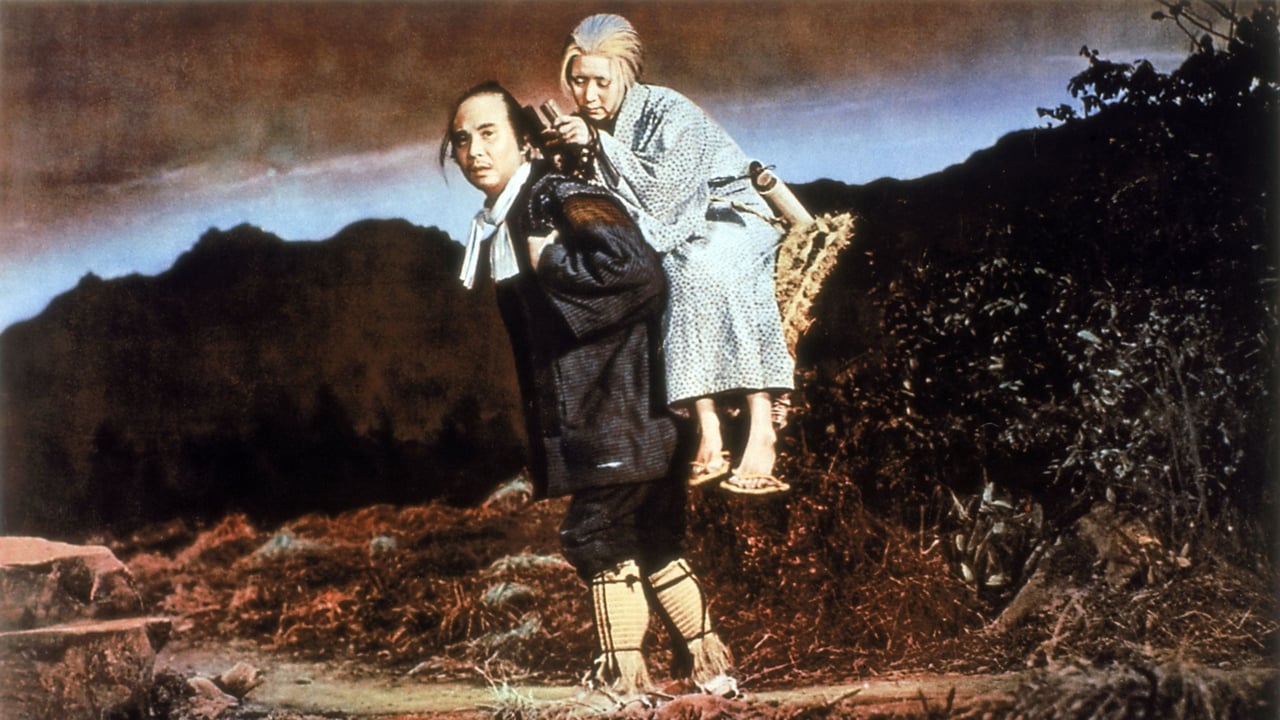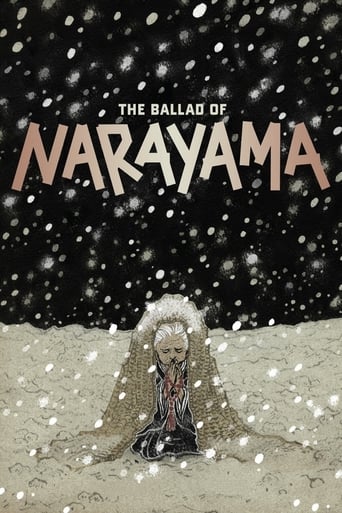



The joyful confection is coated in a sparkly gloss, bright enough to gleam from the darkest, most cynical corners.
View MoreThrough painfully honest and emotional moments, the movie becomes irresistibly relatable
View MoreThe movie turns out to be a little better than the average. Starting from a romantic formula often seen in the cinema, it ends in the most predictable (and somewhat bland) way.
View MoreThe film never slows down or bores, plunging from one harrowing sequence to the next.
View MoreThe movie is like a sequence of floating woodblock prints. almost every single shot is of astonishing beauty. the music is equally remarkable and when the narrative, the visual beauty and the music combine, it is too much to handle (i cried as if my own mother was going to Narayama).i was a bit upset by the immorality of it, by the absurdity of it all. i am familiar with japanese culture and understand their unique relationship with death and honor - but this movie pushes everything to a strange painful limit.the tremendous performance by Kinuyo Tanaka (Orin) makes the climb a very moving experience. the detail of the new wife's affinity towards the kind woman that is about to leave is just brilliant (the novel must be quite good aswell). Orin shows her the secret trout fishing spot and there is this immense pain that strikes us, this notion of the absurd amount of knowledge that lives inside elders, and of all the time that could still be used to learn and bond if it wasn't for the Narayama tradition.the photography is just magical. the final scenes, after the warm coloured intimacy of the village, seem like the most desolate scenario conceivable - it makes something like Peter Jackson's Mordor, in LOTR, look like a kindergarden. just beautiful from start to finish. this is a the kind of movie that reminds me of what cinema was all about.
View MoreI had seen Shohei Imamura's version of this novel a few years ago, and it ranks as one of my favorite films. This earlier version, presented as a sort of kabuki-like play, loses a bit of its power because it streamlines the narrative a bit (not that I've read it; I suppose Imamura could have added details), but it's quite a wonder itself. The focus is more on the grandmother, the old woman who is to be taken and then abandoned on Narayama, here played by Kinuyo Tanaka. Teiji Takahashi (who acted in several Ozu films) plays her son, the man who is reluctant to follow the tradition. The acting is very good, though obviously stylized. What one will probably most remember about this version of the story is the gorgeous, painterly cinematography. It's all deliberately artificial, with a lot of painted backdrops and seamless scene transitions (Joe Wright's recent Anna Karenina adaptation may have been directly influenced by it). One moment that I found unintentionally funny: a bunch of crows are startled at one point and start to fly around, and a couple of them run into the matte painting in the background and have to turn around. The film is quite a wonder to behold, and the emotional heft of the story still works. It's certainly a nice companion piece to Imamura's masterpiece.
View MoreMade available on Blu-ray by the Criterion Collection, Kinoshita's highly stylized exploration of the Narayama story is a deliciously stunning exploration of the possibilities of colour, and has some of the most inventive use of transition in film.You might be familiar with the far more explicit and naturalistic film version of the same story from 1983, made by Shôhei Imamura, and knowledge of that film greatly enhanced my viewing of this. These two films are worlds apart, in fact so much that it feels that Imamura's film openly converses with this, since its theatricality seems to almost provoke the kind of hyper-naturalism inherent in the Imamura. Another film that enriches this is Kinugasa's "Jigokumon" ("Gates of Hell", 1953), available on Region B Blu-ray courtesy of the Masters of Cinema, and soon to be released by Criterion, as well.I didn't know much of Kinoshita before this, only the biographical information concerning his relationship with Masaki Kobayashi, who served as his apprentice and whose film "Harakiri" (1962) Kinoshita openly disliked (he reversed his opinion later). I think it's somewhat ironic since Kobayashi's use of lighting certainly finds a compeer here, and I think this definitely encouraged "Kwaidan" (1964) to go to the lengths it did.
View MoreThe same story: a village, a young man with his old mother. He will bring her to die to Narayama. the interest of this movie is the mix of tabuchi theatre and cinema. Each scene began at the same time the previous one is finishing. And really poetical story, and movie
View More